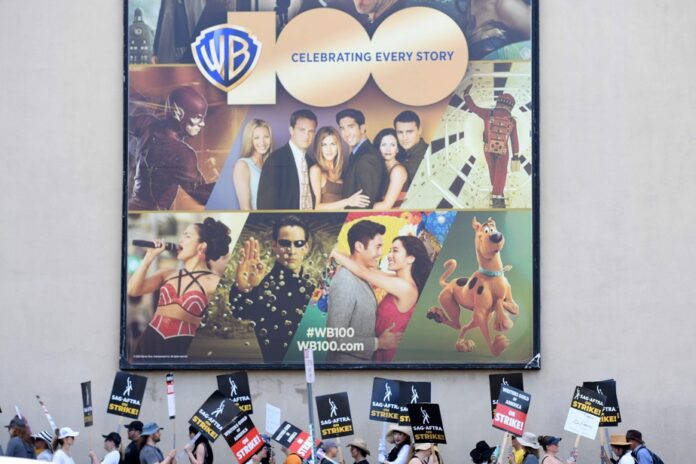Like the authors, the actors have chosen to strike out to force the Alliance of Film and Television Producers (AMPTP), which represents the major studios (Disney, Sony, Paramount, Universal, Warner Bros.), viewing platforms in line (Netflix, Apple TV, Prime Video) and all generalist channels (ABC, CBS, FOX, NBC) to review their ways of doing things. One of the points at the heart of the dispute concerns royalties for the exploitation of audiovisual works (series and films) on the Internet. Authors and actors believe that they have not benefited from the explosion of viewing platforms in recent years. “Digital has taken on a lot of importance; the system has to adapt, says Pauline Halpern, executive director of the Society of Radio, Television and Cinema Authors (SARTEC), the Canadian union of French-language screenwriters. What was once considered secondary exploitation compared to other modes of exploitation [TV and cinema] is now central. »
Unlike Tom Cruise, Dwayne “The Rock” Johnson, Jennifer Lawrence and company, most American comedians don’t pocket $20 million per project. A tiny part is rolling in gold, underlines Christian Lemay, president of AQTIS 514 IATSE, the union of Quebec technicians. “Yeah, there’s Brad Pitt, Angelina Jolie, George Clooney and Julia Roberts. Everyone knows them. But they are not the ones who are on strike. They support the claims of a multitude of ordinary people who spend their careers playing supporting roles, third roles… This is real world. »
To be covered by union health insurance, an actor must pocket a minimum of US$26,470 per year. According to SAG-AFTRA, only 12.7% of its members qualify for this coverage. This statistic echoes a recent speech by Union President Fran Drescher. During an address, the actress explained that a “vast majority of SAG-AFTRA’s 160,000 members [are] ‘ordinary workers’ trying to make enough money to pay their rent, eat and send their children to school. the school”.
Members of both unions fear that they will eventually be “replaced” by artificial intelligence. For example, a writer might write the first season of a series only to “lose” it to a machine that concocts subsequent seasons. The author Chantal Cadieux, who chairs SARTEC, understands this concern, since it torments many people in the industry in Quebec, she points out. “You have to frame that. There must be clear markers. We can’t close our eyes. We cannot say that it will no longer exist in five years. The reaction of American actors and authors does not surprise Philippe Goulet Coulombe, professor of the department of economics at UQAM. “It’s normal that they see it as a threat. In any sector of activity, when there is a major technological advance that could replace workers, it creates opposition. The same thing happened when Uber came to Montreal; taxi drivers reacted. »
Hard to say. We’re shown plenty of footage of actors and writers picketing the offices of Netflix and company in the United States, but very little is known about the talks. According to Pierre Barrette, director of the School of Media at the University of Quebec in Montreal, the conflict could last “a long time”. “Finding an agreement that everyone agrees with is going to be difficult. It’s not like there’s one side that’s very rich and the other side that’s very poor. Both parties are struggling. The majors have seen their revenues drop considerably for some time. In the 1980s, the big traditional television stations were said to be like trees to grow money. This is no longer the case. »
For his part, Christian Lemay, of AQTIS 514 IATSE, does not believe that a resolution of the conflict will take place before the end of the year. “For Quebec, what is positive is that once the conflict is settled, American shoots will come back in large numbers. We will have to make sure that we are attractive in terms of our service offer and our tax credit. This is a message I send: our industry must embrace growth. We have to be able to welcome these American productions. »















